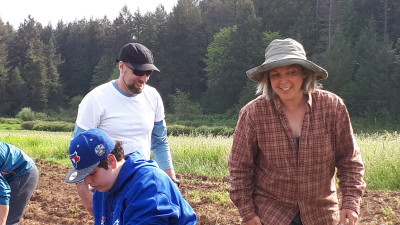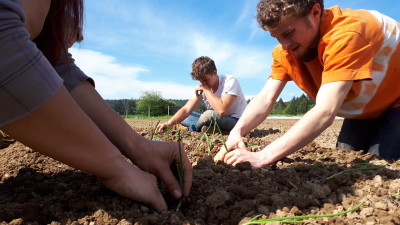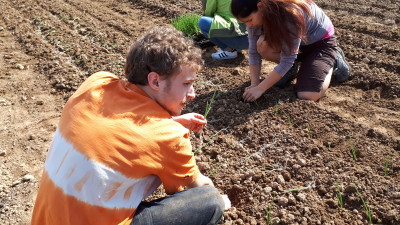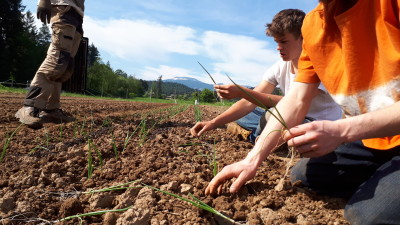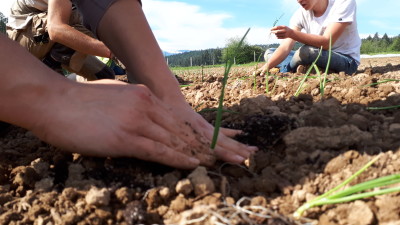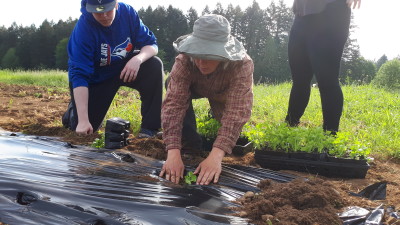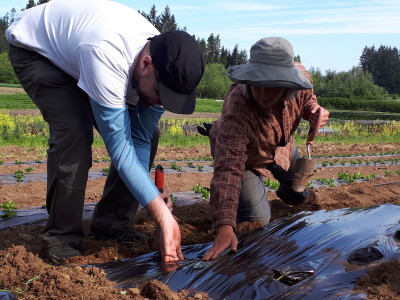Many Hands Makes Light Transplanting Work
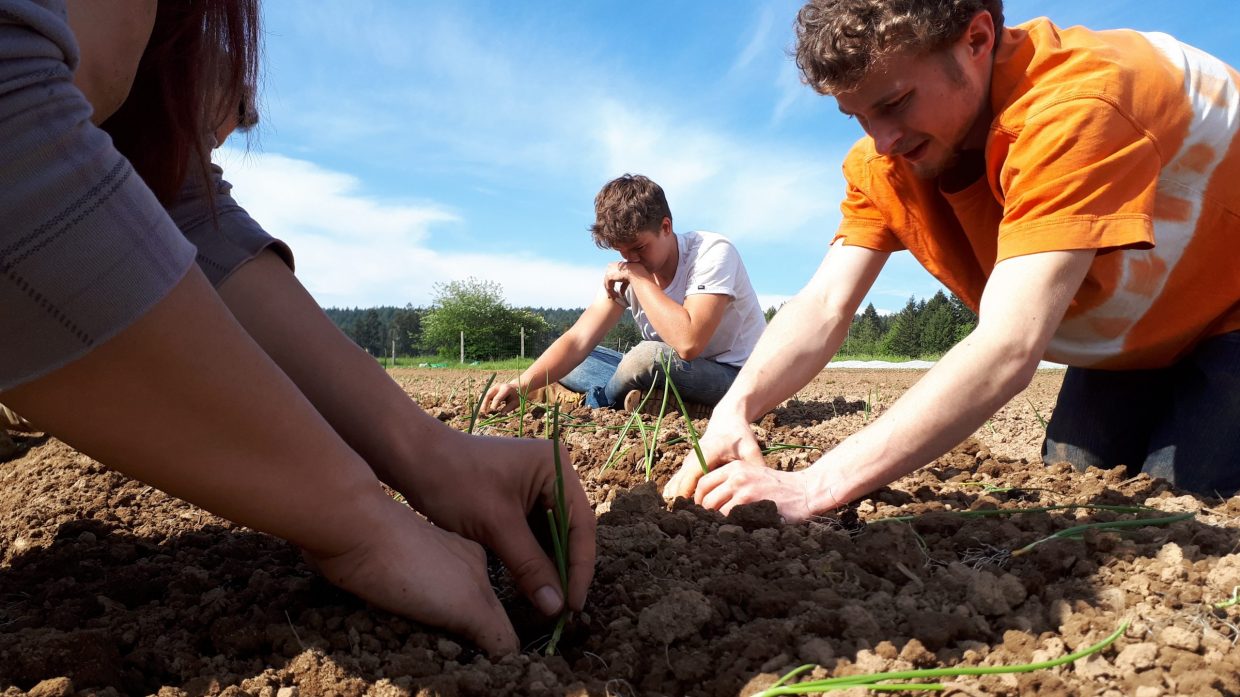
Many Hands Makes Transplanting Easy
Thanks to Francois de Jong from Vancouver Island University Culinary Arts program for bringing many hands to make our transplanting easier last week!
As farmers, we believe in the power of getting your hands dirty, to truly understand and value where your food comes from. As up-and-coming chefs, this direct involvement in transplanting hundreds of seedlings into the soil has already impacted these young adults, inviting them to have a new perspective when developing relationships with farmers to purchase produce for their dishes.
While on the farm, we captured the thoughts of the instructor, Francois and a student, Ben. Have a listen to this article:
[player id=5361]
Instructor Francois: “We are doing a special dinner, and we are trying to incorporate local food into that dinner, and so I thought it would be really valuable for them to actually get out and see what local food looks like. So it’s not just an idea or concept, it’s about how do we build relationships, how do we meet farmers, so that’s part of it.”
“As a chef, we have to make the time to go out and seek farmers and seek alternative distribution of products and that just takes time, we have to actually step out of the restaurant, and just like farmers, we are super busy. We can get lost in just being behind the stove and cooking, and how important it is to take that time to get out and meet people and build relationships. That’s what this is all about.”
Ben: “Chefs that tend to go out and see the farms themselves, they get definitely better food it seems. Different people that come for different things, like people who come for that certain thing, like people that come for Gluten Free, that is a different set of people that come to your restaurant, so it’s like Farm to Table sort of thing. Some people really don’t like pesticides and what’s classified as not organic, so you get people saying “Oh Yeah it’s organic” even though you don’t even say anything.”
Ben: “Organic food is better for you than non-organic food. People buy non-organic food because it’s cheaper.”
From A Little Bird’s eye-view, there seems to be a systemic issue that we need to tend to.
With an interest in the concerns of both farmers and chefs, there is an interesting perspective that has been brought up by multiple farmers this year. Barbara and Lorne Ebell from Nanoose Edibles Organic Farm, Seann Dory from Salt and Harrow in Parksville and other farmers down the road, have expressed a concern about chefs wanting to be able to shop for all of their produce at one farm, being “loyal” to that farm.
From some of the farmer’s perspective, we wonder… do we really need to be a diverse grocery store? Is it really our job as farmers to find clients to sell to? Here are a few issues that farmers face. We are open to your input.
- It is more expensive to diversify as a farm, spreading our resources thin.
- If a particular crop doesn’t grow, for varying natural reasons, that one crop may cause the chef to choose a different provider for all future resources, not taking into consideration that these things are a part of farming.
- Farmer’s shouldn’t be the ones spending money on marketing and convincing chefs to buy from us, we should be investing that time and money into the high-quality production of organic produce.
There are models out there that have coordinators that take the work off both the farmer and the chef to liaison between them and create a win-win for both. Not only is this a need in our community, it should be funded in a way that helps our community thrive. Some farmers have suggested that the Coombs Farmer’s Institute is doing a good job of supporting farmers, and helping to get the word out.
As a Master of Arts in Environmental Education and Communication, I have decided to generate my efforts as a storyteller to identify the issues and roadblocks, to make it easier and more affordable for healthy food to get in the hands of our community. If this topic has meaning for you, share your thoughts with us. How does this affect you? What do you think we should do about it?
Guest Blog is written by Jamie Black MA. from A Little Bird

